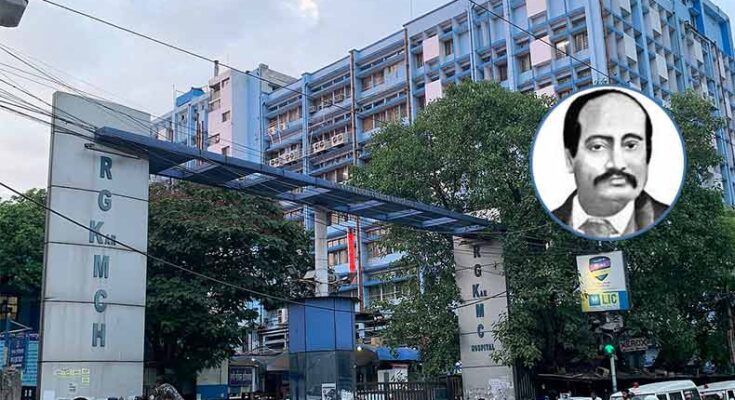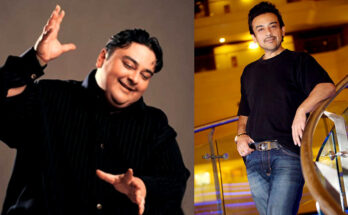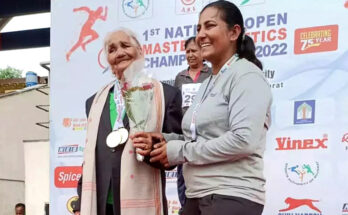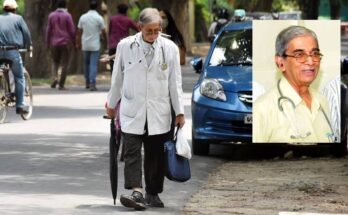The inspiring life story of Dr. Radha Gobinda Kar. Image Courtesy – Anandabazar Patrika
Dr. Radha Gobinda Kar was an Indian Bengali physician and philanthropist who was born on August 23, 1852 and died on December 19, 1918. His father was also a physician named Durgadas Kar.
Education
Radha Gobinda Kar passed the entrance examination from Hindu School. After passing from Hindu school, he sat for the entrance examination of Calcutta Medical College. However, he did not want to sit for the entrance examination first. He wanted to go abroad with five thousand rupees from home. However, his father was a tough man. He forced his son back home and put him in the entrance examination.
After passing out, he started studying medicine. But he left after one year. He was again admitted at the Calcutta Medical College In 1880 where he studied for the next three years. He received his degree in the medical profession from the University of Edinburgh in the year 1883.
From the capital city of Scotland, he returned to his country as MRCP and started practicing. Later he became another God of the poor people. If a patient does not have money to buy medicine, he did not take the fee. Not only that, but he also gave money for medicine – what today’s doctors cannot even imagine.
Then the time came when the terrible plague epidemic came to Calcutta. A lot of people began dying every day. It was seen that a doctor has been working tirelessly all day in North Calcutta ignoring all the fears. He has been continuously making the patient’s family aware of the situation.
Another majestic woman was the partner in this work. She was Sister Nivedita (original name was Margaret Elizabeth Noble) of Ireland. Nivedita also forgot to have her lunch and bathing – all the day giving her service to the people. Dr. Radha Gobinda Kar was consulting patients in different places riding his bicycle within the scorching sun.
These people are so addicted to love and humanity to other people! We cannot do all these things! What was the need for an MRCP doctor in those days to do all this? It is simply said that some people come to this world who are made of different materials. Their structure of mind is completely different from others.
The Calcutta Medical College was there at that time. The European people were in power there. Natives were not getting good treatment. Dr. Radha Gobinda Kar thought that if a medical college could be established there then the people of the country could get a little better treatment.
But who will pay so much money? It was not possible to establish a college and hospital with all of his money! Then he started begging for the construction of a hospital at the doorsteps of the rich people.
Read: Gokhale, the Great Reformer of Pre-Independence Indian Society
Several incidents used to happen at that time like this one below:
Most probably the year could be between 1904 and 1905. A wedding ceremony was organized at the house of a rich man. A man was standing in front of the gate of the wedding house and was seen begging. He did not actually look like a beggar. His appearance displayed a pretty handsome look. Still, he was begging. Someone was giving money, someone was passing by.
The man was saying, “Don’t donate anything? I’ll build a hospital.”
Nobody knows that he was a doctor! “All the group of four Twenty people! He will build a hospital!” (a few of the invitees holding hands on the forehead as they do to many beggars on a train)
Someone again recognizing him said, “Doctor! You?” Saying this, he paid a salute to him and took out some money from his pocket, and gave it to the doctor. The man continued raising money in this way for building a hospital.
Finally, one day the dream came true! Albert Victor, the first private college and hospital was established at Belgachia in Kolkata. That’s a surprise! The man started walking to fulfill his dream projects.
Before passing the doctorate, he started writing medical books in Bengali for college students. Because he felt that if anybody could start studying and teaching medical science in his native language, a new horizon would open up. His books contributed a lot to the doctors of the younger generation.
His first book was ‘Vishagbandhu’. Published in 1871. He wrote multiple books before his death. Notable books include ‘Sankhipta Sharirtotto (Short Physiology)’, ‘Rogi Porichorja (Patient Care)’, ‘Vishak Suhrid’, ‘Plague’, ‘Stree Roger Chitraboli O Sankhipta Totto(Gynecological Images and Short Theory)’, ‘Sankhipta Sishu O Bal Chikitsa (Short Child and Pediatrics)’, ‘Sankhipta Voishaj Totto (Short Pharmacology)’, ‘Kar Samhita’ and ‘Kabiraj Daktar Sangbad (Kabiraj Doctor News)’. All the books were written in Bengali and were suitable for the general public to read. Students in English medical classes also read his books.
The struggle of Radha Gobinda Kar to facilitate medical treatment to the people of the country did not get the support of the Bengali society at first. Even Ishwar Chandra Vidyasagar discouraged him. Vidyasagar’s statement was that –“There is a big difference between setting up a general school and setting up a medical school.” However, Radha Gobinda Kar did not give up.
He worked tirelessly on the technical aspects of medical science, writing books and consulting patients, and he did not make the mistake of trying to raise money to set up a medical school.
Endangering his own life in the face of a deadly plague, writing and editing medical science books in his mother tongue (Bengali), setting up Asia’s first private medical school after overcoming hundreds of obstacles — these were all indications of Radha Govinda Kar’s love and sense of responsibility towards the country and its people. He knew Sanskrit impossibly well. That knowledge was used to understand the ancient medical system of India. That knowledge was also used to make medicines for Bengal Chemicals and Pharmaceuticals.
According to Acharya Prafulla Chandra Roy’s autobiography, “Life and Experiences of a Bengal Chemist”, Radha Gobinda Kar’s unwavering financial support and productive advice helped in the formation of the country’s first pharmaceutical company. He understood that building hospitals, training doctors, setting up medical schools, and writing books were not enough to cover the medical shortcomings of the people of the country.
Besides, he was keeping a close eye on the patient so that they would not have to buy foreign medicines at exorbitant prices. Therefore, he also played a significant role in making medicines in a native way. With all his fame in mind, it can be said that he was the real man of the Renaissance in the nineteenth century in Bengal.
On December 19, 1918, Radha Gobinda Kar died of influenza. More than a hundred years have passed since the death of this working doctor. There is no evidence that he received the respect he deserved, either during his lifetime or after his death. Even now, his name is rarely kept in the mind of the Bengali people.
But, the greatest honour to Radha Gobinda Kar was probably given by another proverbial physician of Bengal – Dr. Bidhan Chandra Roy. In the year 1947, a rich man from Calcutta announced to donate 2 lakh rupees to the fund of Belgachia Medical College. The condition he kept was like that – the name of the college should be given to any member of his family. The college committee agreed to the proposal considering the financial crisis of the college. Dr. Bidhan Chandra Roy was the Chief Minister at that time. He took up the matter on his own initiative and the college was named after Radha Gobinda Kar. In short, this hospital is now called R G Kar Medical College and Hospital.
Couldn’t have he spent his life differently? Yes! He could have spent. But, this kind of human being does not want anything in return – they come to us to provide benefits and services filled in their two hands.





